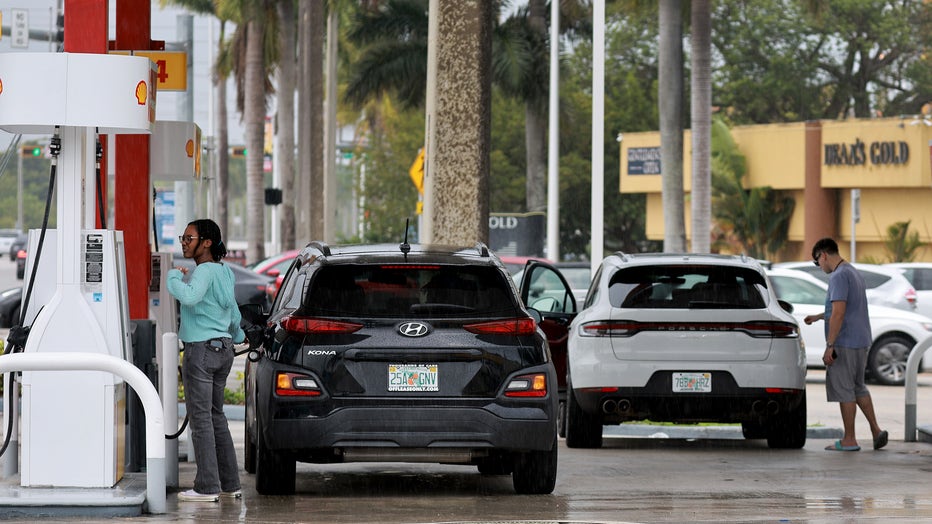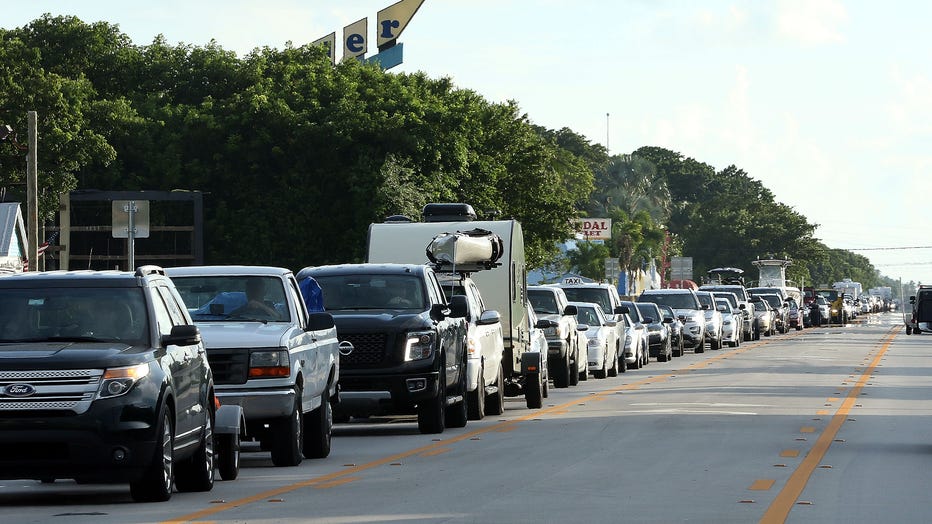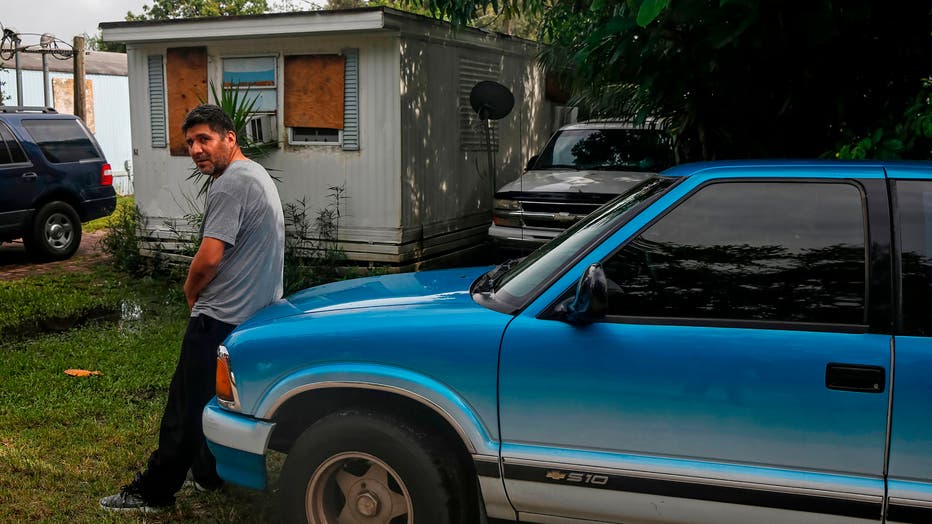Sticker shock: High gas prices could impact who decides to evacuate this hurricane season
As the hurricane season gets underway, experts at AAA are warning that not everyone who finds themselves under an evacuation order will get out of harm’s way.
Out of the four states polled, Florida came out on top for having the highest percentage of respondents saying they’ll ride out the storm.
Around 25 percent of Floridians recently told the auto club that they would stay in their home through a hurricane, despite being in an evacuation zone.

MIAMI, FLORIDA - MARCH 10: A person fuels their vehicle at a gas station on March 10, 2022 in Miami, Florida. (Photo by Joe Raedle/Getty Images)
Residents in Georgia, South Carolina and North Carolina were also polled, but all of the Southern states saw a higher percentage of people saying they would follow evacuation notices than in the Sunshine State.
Experts warn a multitude of reasons could be to blame for the more relaxed atmosphere amongst Floridians.
RELATED: 7 facts to know about hurricanes
The majority of the state has been fortunate without seeing impacts from a significant tropical system for several years.
Since 2018, only one major cyclone has struck the state, and the last time a hurricane made landfall on the East Coast was back in 2005.

Forecasters from NOAA's Climate Prediction Center are predicting 14 to 21 named storms, six to 10 hurricanes and three to six major hurricanes (Category 3 or higher on the Saffir-Simpson Hurricane Wind Scale). These numbers are greater than the 30-year averages (1991-2020) of 14 named storms, seven hurricanes and three major hurricanes.
The lack of hurricanes and the population boom means the majority of the residents have never experienced hurricane damage or have had to evacuate for a natural disaster.
NEW TO FLORIDA? HERE'S A GUIDE TO HELP PREPARE FOR YOUR FIRST HURRICANE SEASON
Additionally, the AAA survey suggests that rising inflation might also weigh into decisions on whether to flee or wait out the storm.
Prices for gas and other travel expenses are on the minds of many who live in coastal communities.
Just short of half of the respondents in Florida said the price and availability of gas could influence their decision on whether to evacuate or not.

ISLAMORADA, FL - SEPTEMBER 05: Cars sit in traffic as they evacuate heading North on Overseas Highway in the Florida Keys on Septeber 5, 2017 in Islamorada, Florida. (Photo by Marc Serota/Getty Images)
"We get it. Economically, it’s hard. And especially if people are on fixed incomes, gas is a lot more expensive, food is a lot more expensive. So collectively, work together, you know, see how you can put those hurricane kits together," Cathie Perkins, Pinellas Emergency Management Director, said.
Confusion on where to evacuate to, the safety pets and just being around in case of damage to the home, were some of the top reasons residents gave to AAA for planning to ride out the storm.

A man stands outside his trailer at The Manatee Mobile Home & RV Park in Fort Pierce, Florida on September 2, 2019. - (Photo credit: ADAM DELGIUDICE/AFP via Getty Images)
The Atlantic hurricane season began on June 1 and will end on November 30, and if experts’ predictions are accurate, the season could be another busy one.
RELATED: Watch vs. Warning: Here are the differences between these weather terms that could save your life
Colorado State University recently released an updated outlook that calls for as many as 20 named storms, 10 of which could become hurricanes with winds of at least 74 mph.


